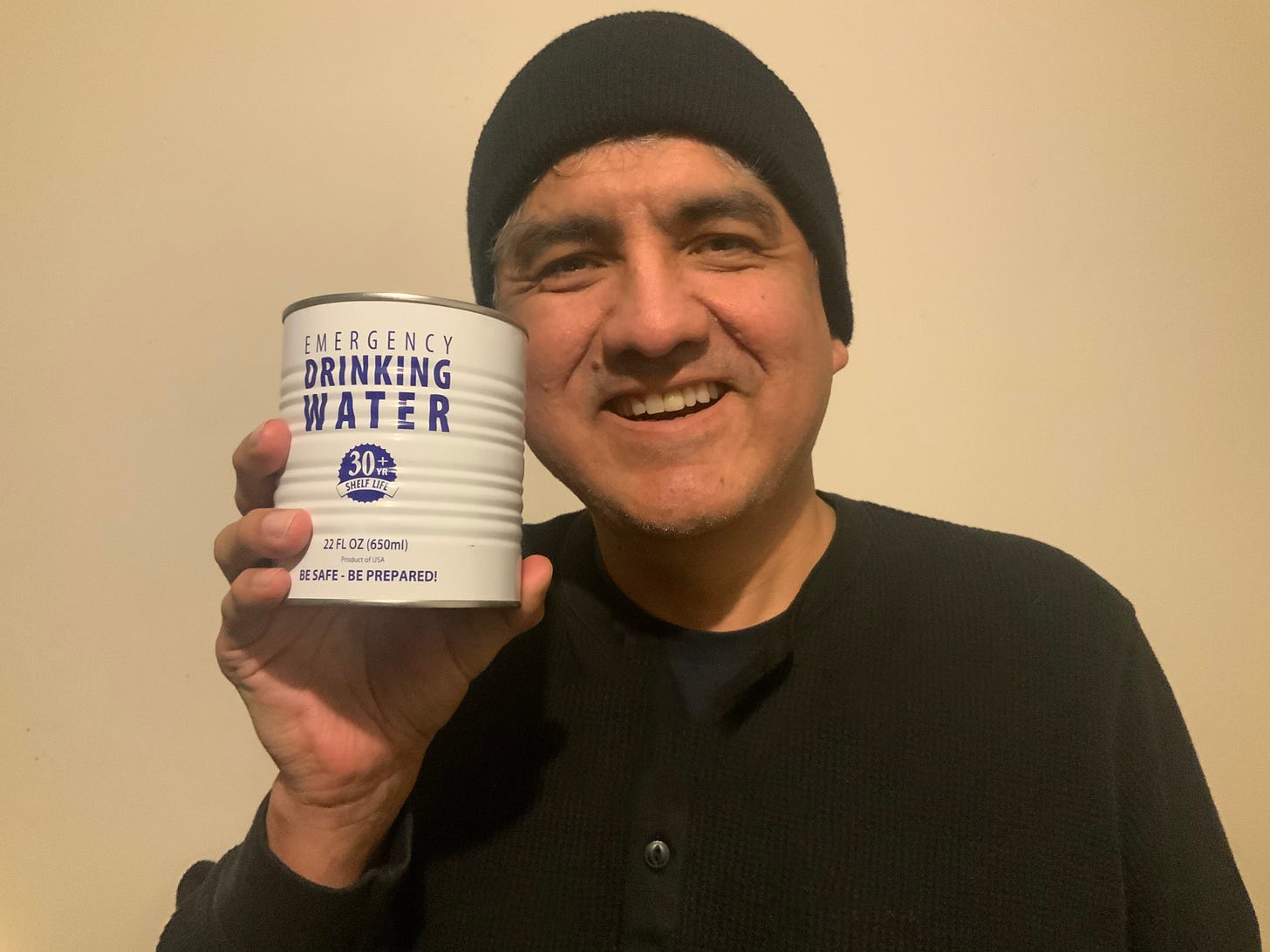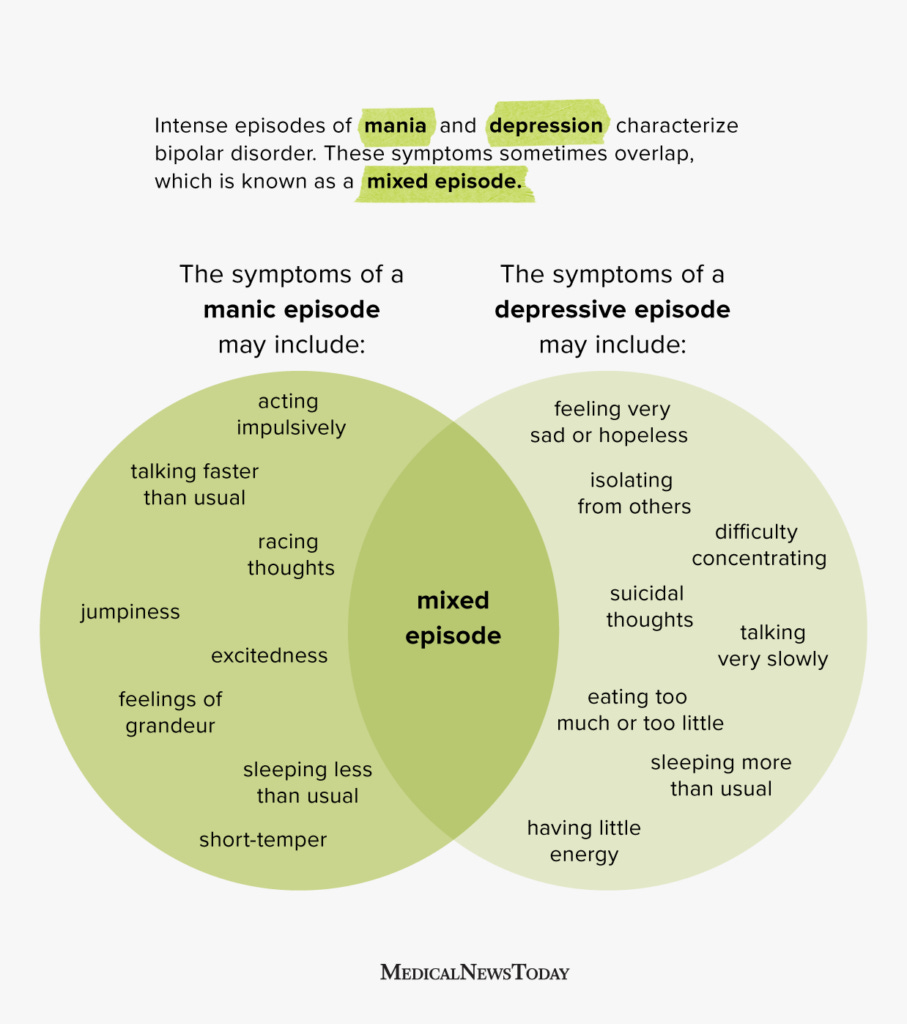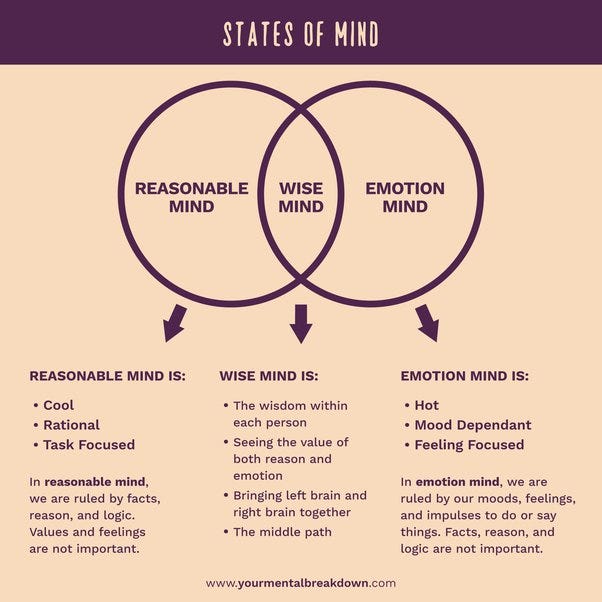My Mania, My Depression, My Politics
How bipolar disorder distorts my political opinions and practices

1.
A BRIEF INTRODUCTION TO MY BIPOLAR DISORDER
I’m mentally ill.
I was diagnosed with bipolar 2 disorder in 2010, though I believe that it first began to manifest itself in puberty. When I was eight, I stayed awake for two days waging war with a new Guns of Navarone play set that I’d received as a Christmas gift.
Through the unpredictable magic of the Internet, I’ve found an image of that toy. Pretty awesome, right?
You’re probably wondering why my parents let me stay awake for two days. Well, bipolar disorder and other mental issues do have genetic and cultural causes. I’m certain that both of my parents suffered from undiagnosed mental illnesses—my mother from bipolar disorder and my father from severe depression. In my household, mentally ill behavior was not unusual.
Like many people with bipolar disorder, I resisted treatment for years. Decades, really. Even though I publicly identified myself as bipolar, I was still trapped in a private hell of self-destructive and destructive behavior. I wasn’t fully honest with my therapists and psychiatrists, and certainly wasn’t honest with family, friends, and colleagues, either. And I only sometimes took my prescribed medications.
Over the years, I’ve also been inaccurately diagnosed and mis-medicated and was emotionally tortured at a mental health care facility. That particular cruelty is a subject for a different essay.
Whether untreated or mistreated, I believed that I couldn’t be a writer without my dramatic mood swings. That was a dangerous belief. I was convinced that cognitive behavior therapy and mood stabilizers were causing more harm to my creative life than my mental illness was. And, damn, damn, damn, I was dreadfully wrong.
Here’s a graphic that lists some of the symptoms of bipolar disorder:
Though I’ve been diagnosed as bipolar 2 with mixed episodes, I’ve also experienced psychosis and the attendant hallucinations, delusions, and paranoia that come with bipolar 1 mania. During the Summer and Fall of 2016, fearing for my family’s life, I purchased thousands of dollars worth of survival supplies and emergency food and water. Amazingly enough, I also bought one of the best bulletproof vests available to a civilian.

In January, 2018, I began Dialectic Behavior Therapy (DBT) to treat my bipolar disorder—hoping to mitigate the effects of my mania, depression, and paranoia.
DBT is an evidence-based therapy for disorders of behavior and emotional regulation, including bipolar disorder. Developed by psychologist Marsha Linehan, Ph.D, in the 1990s at the University of Washington, DBT combines behavior science with mindfulness and contemplative practices.
I regularly use DBT tools to moderate my suicidal ideation. In 2019, during one of the most terrible nights of my life, I wandered the Seattle streets, seriously and desperately planning my suicide, and only emergency phone calls with my DBT therapist saved my life
To strengthen my self-esteem, I need to directly state that I saved my life. I’m the one who originally called the DBT treatment center and asked for help. And I’m the one who religiously takes his medications.
2.
Now We’ll Talk Politics and DBT
So, yes, over the last four years of DBT, I’m learned and continue to learn how my bipolar disorder affects my entire life. In particular, I’ve come to realize how regularly and intensely that my manias and depressions have negatively affected my political opinions and practices.
I view myself as a Progressive Democrat with some socialist ambitions and a very strong streak of classical liberalism. As a Native American, I also have some libertarian impulses. After all, who carries more valid reasons to distrust the U.S. Goverment than a reservation-raised Indian? In short, my politics contain multitudes. Also in short, that means I have fundamental disagreements with every politician I vote for.
But, through Dialectic Behavior Therapy, I now understand that my bipolar mania—my impulsiveness, grandiosity, and rapid thoughts—has sometimes transformed my ordinary Democratic politics into far left fundamentalism and arrogance. And I also understand that my bipolar depression—my isolation, hopelessness, and suicidal ideation—has sometimes turned my ordinary pessimism into apocalyptic thinking.
In mania and depression, my disordered thoughts roller-coaster from “I know more about the politics than everybody else” to “The world is gonna end soon so why should I keep living?”
Yes, my public and private political beliefs and practices have sometimes been the direct result of untreated mental illness.
And, moreover, I’m increasingly aware of how the politics of other people and organizations are regularly motivated, affected, and distorted by emotional and mental problems.
And now, I feel the need to stress the fact that I’m a total amateur in making these judgements about mental health. I’m aware that my opinions about mental illness could be wildly skewed by my own mental illness.
So let me continue with my amateur opinions.
As a Progressive Democrat, it’s easy for me to use Donald Trump as an example of a political figure who’s obviously affected by several personality disorders—malignant narcissism being the most apparent. But it’s now equally easy for me to recognize the probable personality disorders of leftist politicians and activists, many of whom have their own form of narcissism and unquenchable need for attention and control.
So let me write something that challenges leftist thinking. Let me test my theories.
I find it very easy to see Thomas Jefferson as a liberal genius who helped found an astonishing and unprecedented democratic republic and as an incredibly flawed, profoundly hypocritical, and racist asshole who endorsed and practiced slavery, that most terrible of sins.
At my healthiest, I can function in those grey areas. I can hold two opposing thoughts. I can be celebratory and disgusted at the same time.
But I think my opinion about Jefferson would easily send many leftists into an unreasonable rage.
And it’s that unreasonable rage, as demonstrated by the left and right, that makes me wonder about their mental health and also makes me more willing to interrogate my own politics. In DBT terms, it makes me more willing and able to consciously use Wise Mind while interrogating my politics.
3.
What is Wise Mind?
Here’s a basic graphic:
And, yes, I know this particular graphic makes DBT seem too simple—too schematic and woo-woo at the same time. I also cringe a bit when anybody talks about “wisdom.” But DBT is actually more like the playbook of a basketball coach. There are specific steps to take when you find yourself in certain situations. DBT encourages you to do something as simple as taking a walk in order to build positive experiences.
And DBT is far more like white collar labor than spiritual practice. There’s a shit-ton of worksheets.
As my therapist friend says, “There’s so much paperwork in DBT.”
To be clear, that therapist friend is not my therapist. I’m friends with many mental healthcare workers. I’m not sure what that says about me.
So, as I proceed with this essay, I’m highly aware that it might get squishy on the edges. But I believe in DBT, even as I recognize that squishiness. I hope you’ll be able to relate to some of its basic concepts.
Okay? So let’s get back into politics.
In Wise Mind, I can see that the far left and far right—and other fundamentalists—operate primarily in Emotion Mind.
And I see that the far left rewards those politicians and activists who campaign and govern in leftist Emotion Mind—who are ruled by moods, feelings, and impulses. And the far right rewards those politicians and activists who campaign and govern in right-wing Emotion Mind—who are also ruled by moods, feelings, and impulses.
In this way, I think the far right’s deification of Donald Trump and the far left’s deification of Alexandria Ocasio-Cortez are similarly motivated. Yes, by using Wise Mind, and recognizing that two opposites can be true at the same time, I can agree with a clear majority of AOC’s politics while also recognizing that she’s often a compelling demagogue.
Also, it’s difficult for people to recognize when they’re operating in Emotion Mind. And people in Emotion Mind often think they’re in Rational Mind. And pretty much everybody thinks they’re in Wise Mind far more often than they actually are.
I’m now hoping that I’m writing this essay in Wise Mind.
4.
Back to My Mental Illness
During my literary career, I’ve often been rewarded for my extreme opinions and political grandiosity. I’ve also been rewarded for my artistic recklessness. In order to write, I must spend significant time in Emotion Mind. A writer needs to take enormous risks in their art. A writer needs to be reckless on the page. In order to perform onstage—and especially to improvise during those performances—I must be recklessly in Emotion Mind.
But I worry about my recklessness when it comes to politics.
So, in light of all this stuff, I should detail how my bipolar disorder has specifically affected one political belief. So let us talk of “white privilege.”
I grew up Spokane Indian on our pine-forested reservation. Yes, I lived in rural poverty. But our reservation was surrounded by logging, mining, and farm towns where plenty of white kids also grew up in poverty—some of them more poor than any rez Indian. Some of those poor white people lived on our rez. Some of them became my in-laws.
As I write this, I’m currently in euthymia, which Merriam-Webster defines as “a normal, tranquil mental state or mood; specifically, a stable mental state or mood in those affected with bipolar disorder that is neither manic nor depressive.”
At this moment, I have a clear and cogent mind. So I can state my clear and cogent opinion about white privilege. And here it is:
White privilege is real. But to say that white people are universally privileged is to say that you’ve never known any poor white people and/or that your empathy machine is running on empty. Of course, white privilege exists but not all white people possess it.
There, I’ve stated my calm and measured opinion based on anecdotal experience and inferences based on economic and demographic statistics. And I have to make inferences because it’s exceedingly difficult to find comprehensive research on the high school and college graduation rates of low income whites. I guess that’s an uninspiring demographic for researchers.
But I wasn’t calm and measured in the aftermath of Trump’s election. I lost my fucking mind when it came to white privilege. I turned my profound anger and disappointment into the abject hatred and vilification of every white conservative, including the ones whom I loved.
Looking back, it’s quite obvious that my manic paranoia of 2016—and my impulsive and compulsive purchase of emergency supplies—was directly set in motion by the increasing likelihood that Donald Trump was going to win the Presidency.
I also had brain surgery in December, 2015, to remove a meningioma—a non-cancerous tumor—and that brain trauma also contributed to my long manic episode.
I’d guess that some of you reading this are thinking, “Well, your political paranoia might’ve been bipolar but that doesn’t mean it wasn’t logical.”
So I need to say this again and very loudly: I’M THE AMERICAN POET WHO BOUGHT A BULLETPROOF VEST.
That’s a distinctly and decidedly illogical move.
It’s also among the most grandiose things that I’ve ever done as a person and writer. I’m not Federico Lorca fatally endangered in a Spanish dictatorship and I’m not Aleksandr Solzhenitsyn imprisoned in a Soviet gulag.
I can see now that my illogical paranoia and manic fundamentalism, when manifested, are the opposite of my lifelong value system, which prizes kindness, generosity, optimism, and diplomacy.
After all, I was the liberal Democrat Indian who was the captain of the basketball team, prom royalty, and president of the Future Farmers of America in a very white and very conservative high school in one of the whitest and most conservative counties in the entire United States.
I’m still very much a Progressive Democrat who fears the right-wing cult of Donald Trump, but I also understand why his fans flock to him. I have empathy for those fans because I know they’re primarily motivated by fear, anger, paranoia, economic desperation, and the snobbery and condescension of my fellow Democrats. Most of all, I know they’re profoundly unhappy and demoralized.
At my best, I want Democrats to adopt liberal politics and practices that would win the support of those unhappy and demoralized conservatives. In mania and depression, I think my general attitude is Fuck them.
But I’m not a hateful person. I’ve never been a hateful person. I’m a mess in all sorts of minor and major ways. But I’m not normally motivated and controlled by hatred or any other extreme emotion—except when my bipolar disorder takes control of my brain.
I think it would benefit all of us if we spent more time wondering how our moods can lead us into irrationality.
In the end, I can only say for sure that I have no idea how to make our country and world a better place. I have my liberal theories and ideas but I’m aware that any of them could be completely wrong (or maybe even correct).
I’m not a politician. I’m not a political activist. I only have expertise in Native American life, professional basketball, and American poetry since 1950. So what am I then? I’m just a crazy-ass storyteller trying to make sense of this complicated and contradictory life while detailing the ways in which all of us bumble toward redemption and ruin.









I don’t know man. Been puzzling over a lot of the same stuff. My latest conclusions say that our need/ preference for myth as a species makes us vulnerable to magical thinking and the acceptance of such delusions as money, religion, states and races. I did a similar thing of keeping my emotional state on high octane when I was a songwriter and that led me to some dangerous places. I’m glad you’re finding a path through the mind field. My world is better with you in it.
There is so much here, both the depth and breadth of your discussion, that I cannot respond glibly, except to say that I am fascinated and am going to take this to my heart and think about the sorrow and the beauty and the honesty and even the humor of your analysis, and comment more when it has all been considered. Thank you for sharing this, your deep truth and complexity.